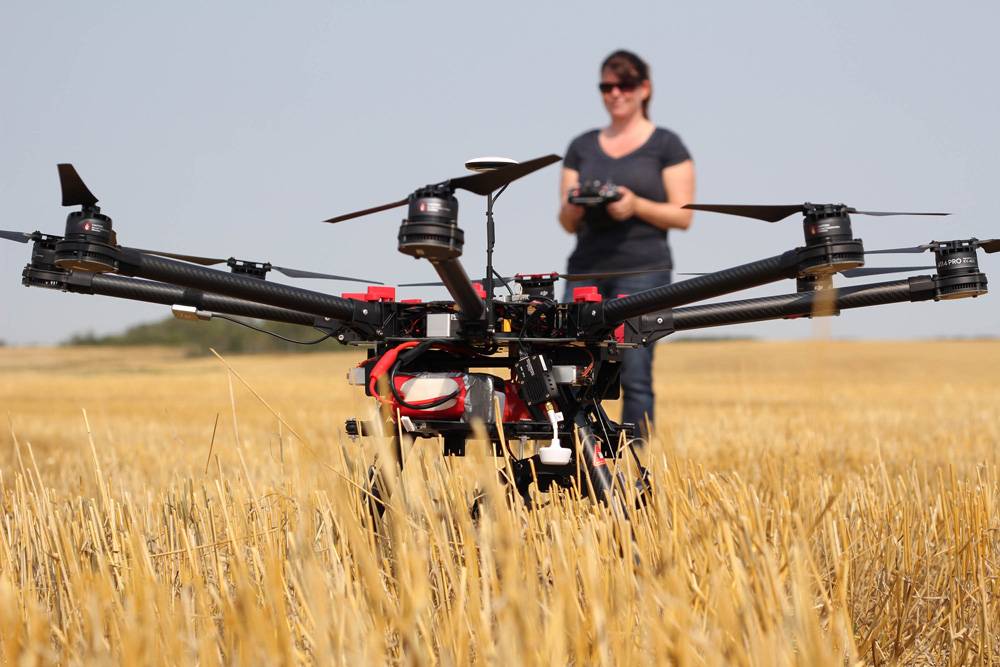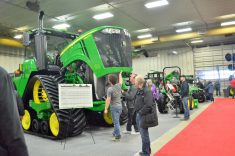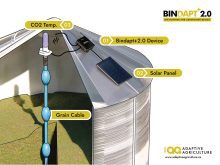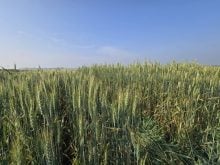A new program at Assiniboine Community College aims to fill high-tech labour gaps in the agricultural sector.
The two-year advanced diploma program in digital agriculture technology will be launched this fall at the college’s Russ Edwards School of Agriculture and Environment.
“This program is about equipping students with practical skills that will be invaluable in the rapidly evolving field of agriculture,” said school dean Tim Hore. “There is a labour shortage in Manitoba’s agriculture sector, with one in three jobs projected to go unfilled by 2029. Programs like this help meet these increasing demands.”
Read Also

Income Tax Act changes could help extended family members inherit farms
Consultants say that changing the Income Tax Act could help transfer more farms to family who are not immediate children of the owners.
He added that the college recognizes “the critical role technology plays in modern agriculture.”
“Introducing new, responsive programs like this one fits well with this direction. We have long been focused on ensuring we’re keeping up with the digital curve in the sector, and this program is a great example of how we remain responsive to industry needs in a way that will set graduates up for success.”
Why it matters: Brandon’s Assiniboine Community College (ACC) has growth plans for its agricultural and ag-related programming, citing labour shortages in the sector.
The program promises both experience and classroom knowledge of technology-driven modern agricultural practices. It will cover precision agriculture, agronomy, crop production systems, livestock, data collection with drones and digital agricultural integrations.
“What sets this program apart is the innovative approach that ties these traditional production principles to the age of digital data in the ag sector,” said Chris Budiwski, academic chair at the school.
By the time students graduate, “not only will they have the learn-by-doing approach that ACC offers, but they will also have some work experience, perhaps even a job reference, and hopefully even another job waiting for them.”
Students will have opportunity to put their learning into practice after the first year. The program includes a work-integrated learning placement, wherein the college helps students secure paid work applicable to their program over the summer break. This will give students on-the-ground knowledge of the industry, Budiwski said, “but even more so, they can see the practical application of what they’re learning.
“They get that real-world opportunity and then bring that back to the classroom the second year.”
Graduates will be suited for jobs as agronomy consultants, “where they’re doing a lot of field sampling or data collection on plant samples, weed IDs, etc.,” he said. “It could be soil survey groups, soil testing, equipment diagnostics in machinery dealerships, or it could even just be in a desk job crunching numbers that other people have collected data on.”
Budiwski said the program could also be useful to young farmers who want more technical know-how.
“If somebody is really inclined to dive into the data, understand their field maps or wants more skill sets in interpreting the data that they collect on their farm, this gives them not just the ability to do data management but also, by the time they graduate, they will be able to visualize and interpret it in a way that they can communicate it to others that are not quite so savvy,” said Budiwski.
Industry feedback provided much of the impetus for the program.
“We often circle back to industry with our pre-existing programs to see what is coming down the pipe,” said Budiwski. “Digital agricultural technology has been permeating to the top for a while now.”
Once the program has launched, Budiwski expects the college will revisit those stakeholders to see if it meets industry needs.
“The one nice thing about the college environment is we can kind of tweak and pivot on the fly.”
Vision for growth
Hore said the program fits well into the track ACC has laid for agricultural training.
The college is part way through a plan to dramatically increase its ag foothold. That plan would see hundreds more ag and ag-related student spaces at the college and includes a swath of new courses besides the digital agriculture technology diploma.
They include mechatronics, geared toward jobs in an increasingly automated agri-food sector, as well as chemical engineering technology and food science.
Increased capacity for applied research also features in the plan and the college touts its capacity for industry partnerships.
The star attraction of the expansion will be a new hub, the Prairie Innovation Centre for Sustainable Agriculture, to be based in a refurbished historical building on the college’s North Hill Campus.
That project, budgeted at approximately $118 million, passed it’s $20-million private fundraising goal in January and has secured around $90 million in provincial commitments. As of late January, the college was waiting for word on its request for federal money.
















